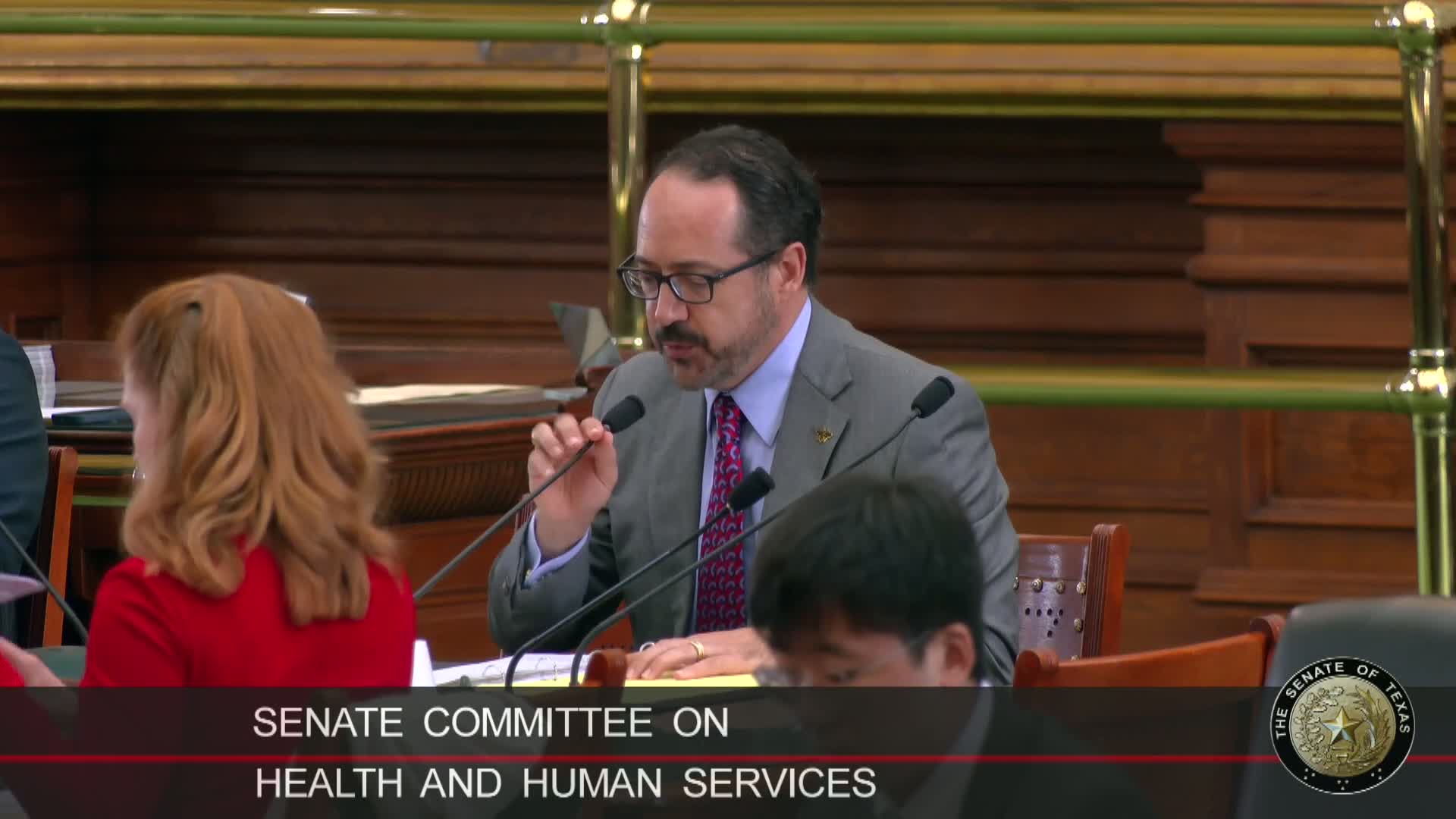Article not found
This article is no longer available. But don't worry—we've gathered other articles that discuss the same topic.
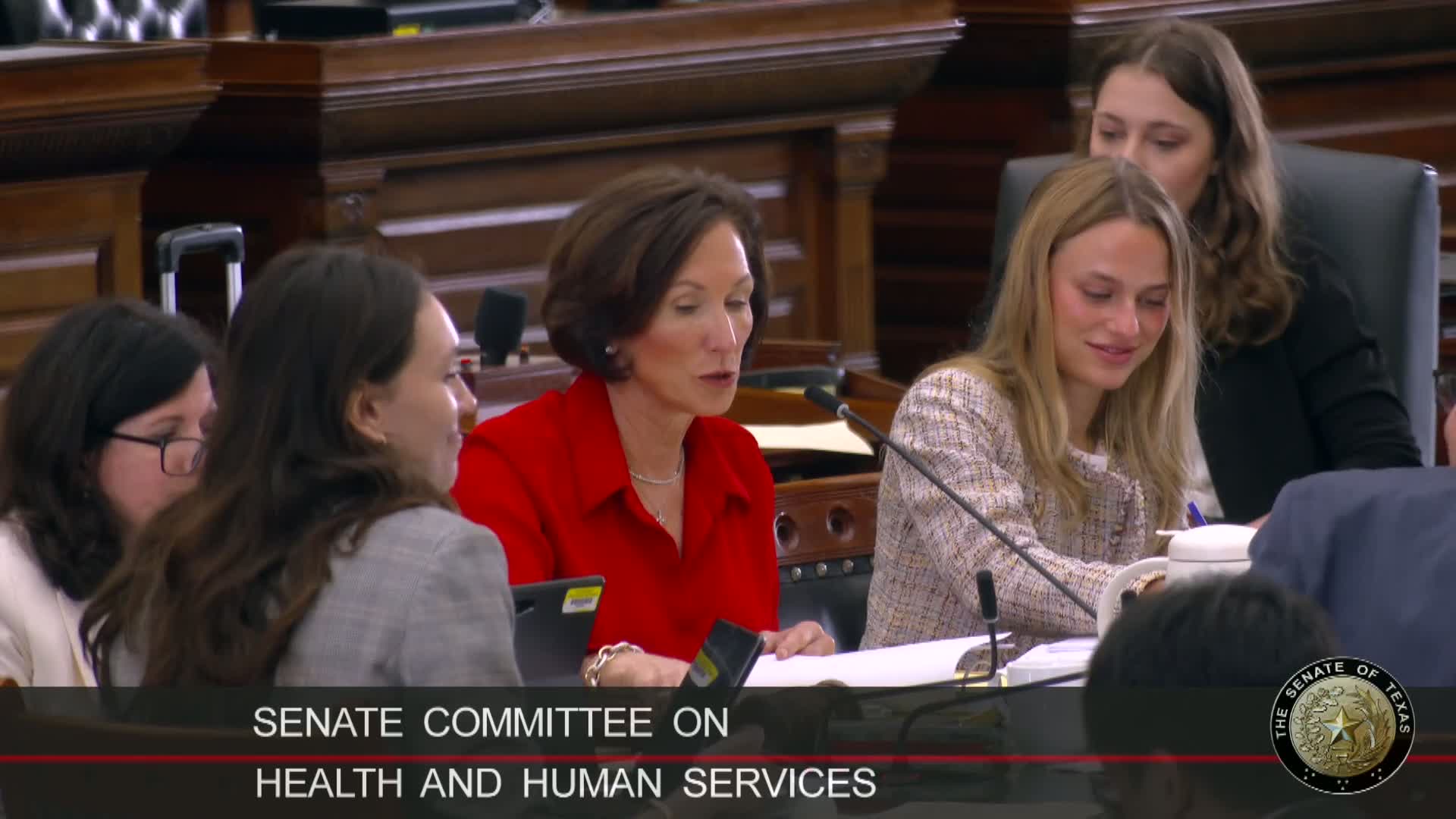
Committee hears bill to allow subscription pharmacy programs such as RxPass in Texas
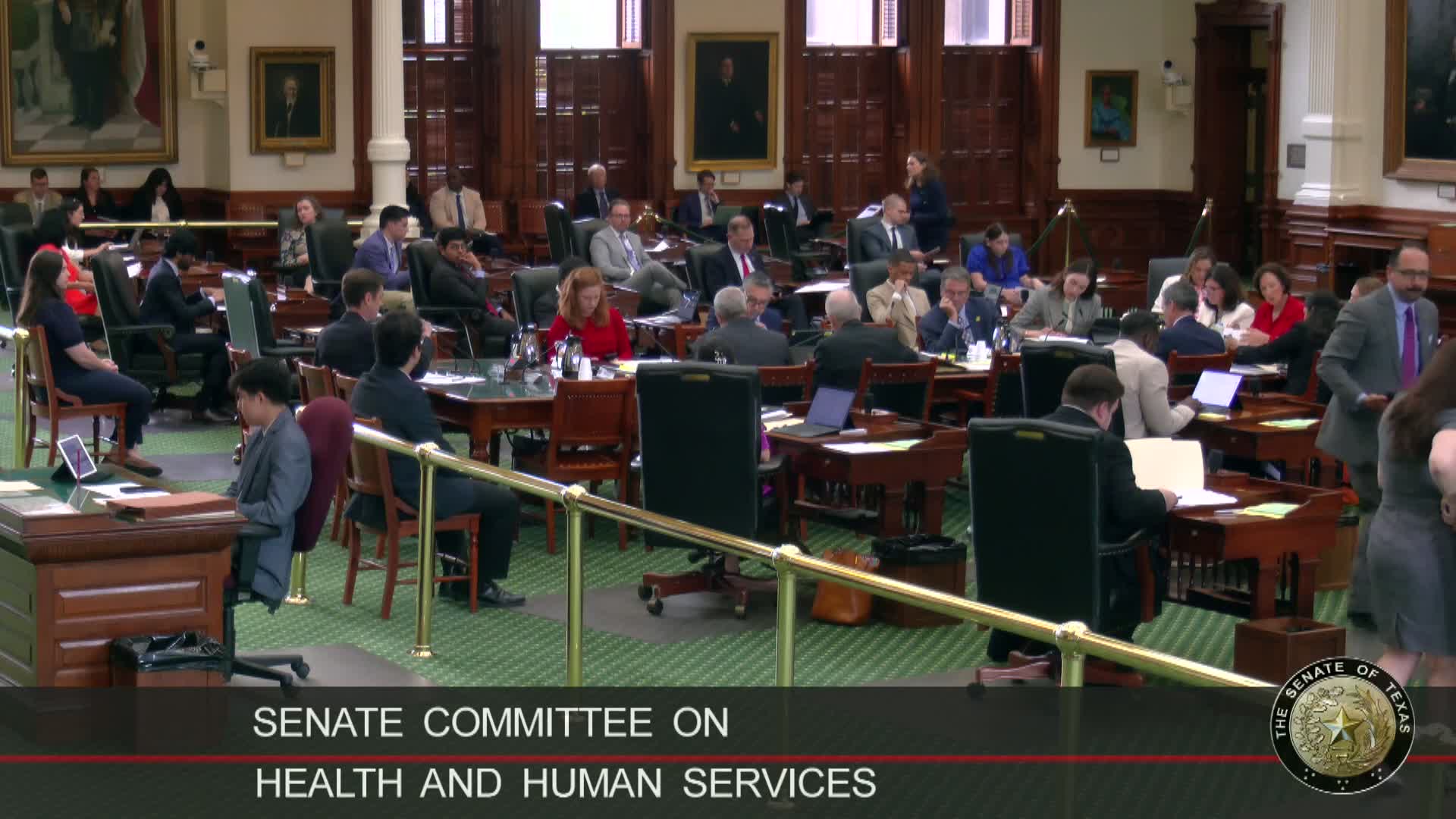
Optometrists press bill to force vision benefit managers to accept qualified providers; plans warn of cost and network effects
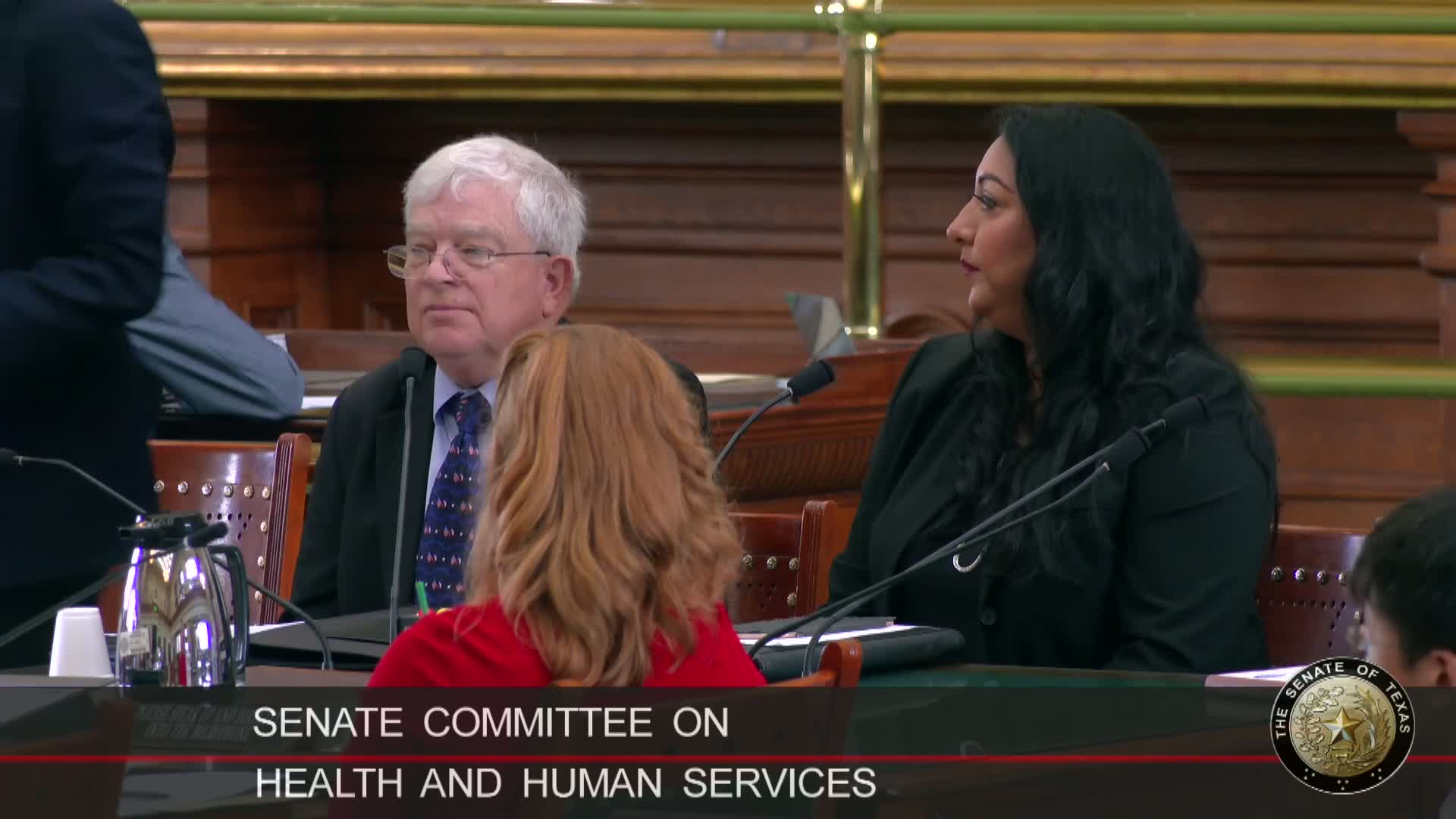
Bill aims to tighten oversight of FACN medical reviews and ensure parents’ access to records
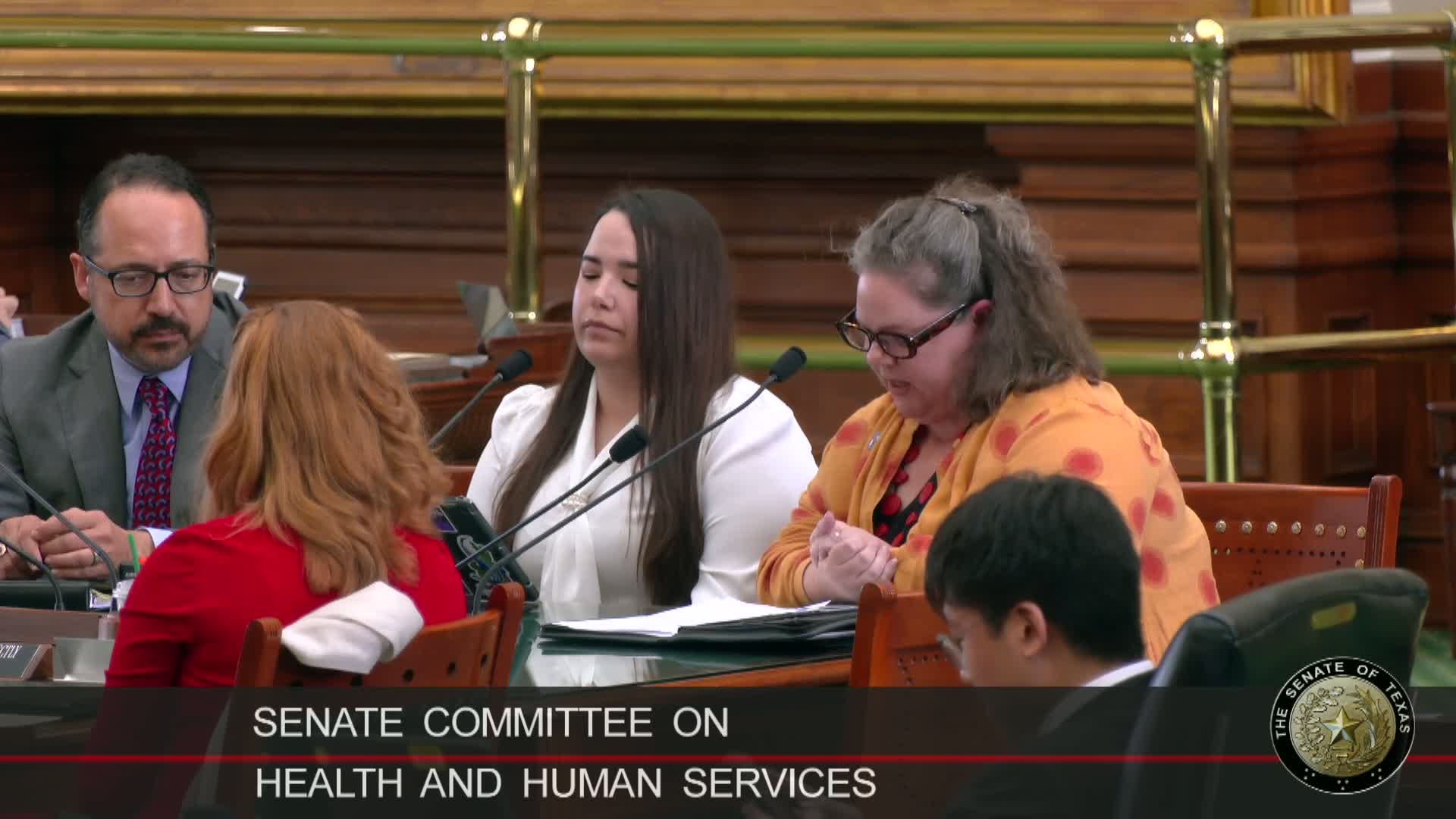
Lawmakers consider Medigap pricing change for Texans under 65 with severe disabilities
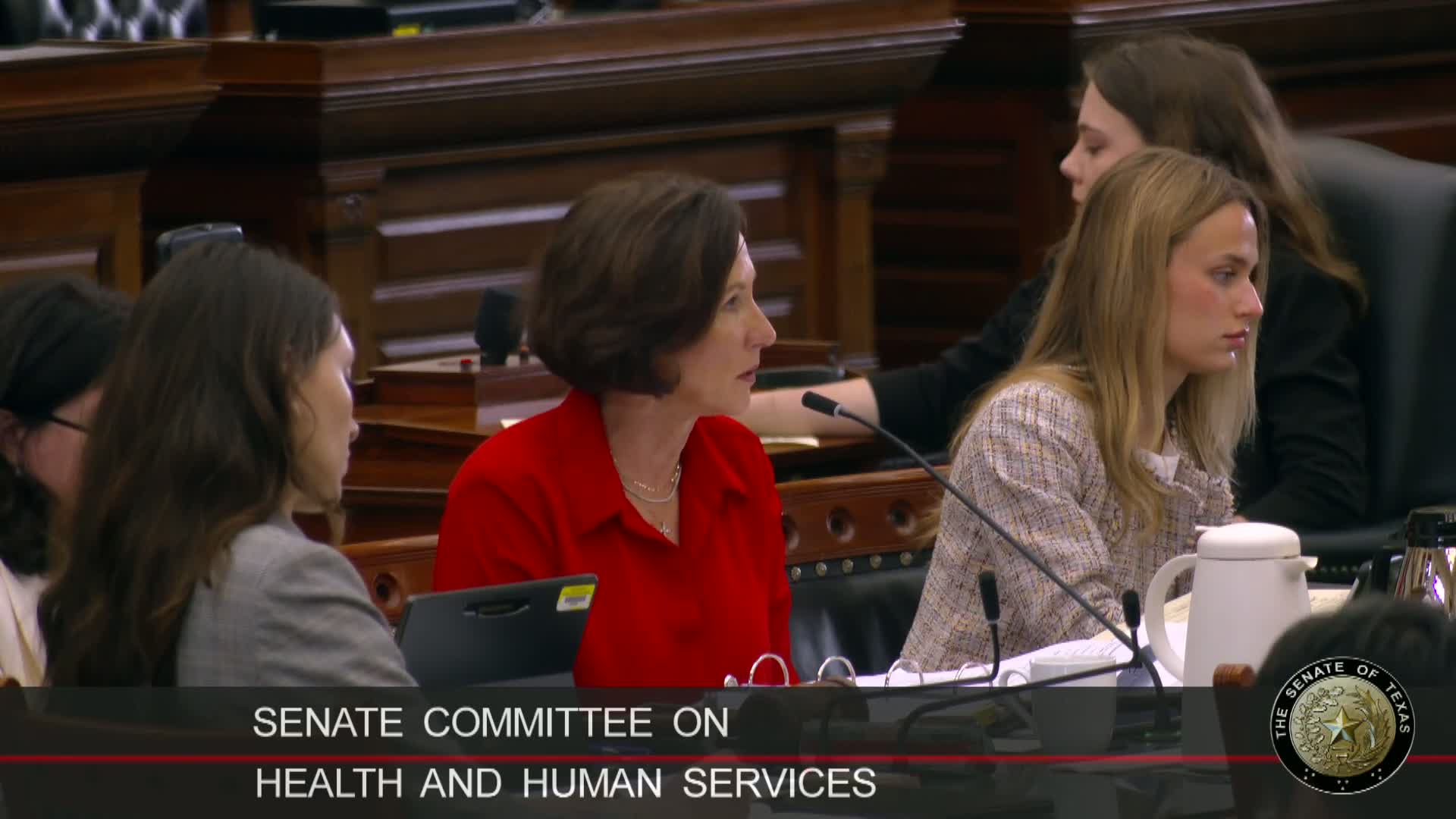
Committee considers shortening DFPS ‘significant event’ notice to 48 hours and adding parents’ attorneys
